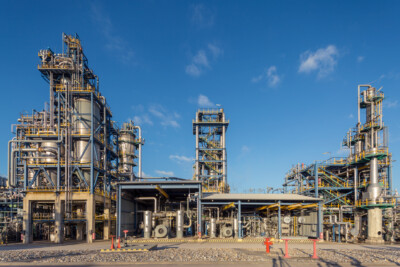
**Challenges in the Petrochemical Sector in Europe: Facility Closures and Capacity Transitions**
A notable change in the petrochemical sector has occurred as two prominent companies, Sabic and Dow Chemical, have revealed plans to shut down their olefin crackers located in the UK and Germany, respectively. Sabic will permanently cease operations at its olefins cracker in Teesside, UK, which has been dormant since 2020 due to efforts to convert its feedstock from oil-based naphtha to the more cost-effective US ethane. This decision aligns with Dow Chemical’s intention to close its cracker in Böhlen, Germany, by the conclusion of 2027, in addition to two other fundamental chemical plants in Europe.
Crackers play a crucial role in generating alkenes such as ethylene and propylene from larger hydrocarbons present in naphtha and other feedstocks. These alkenes primarily contribute to the manufacturing of commodity plastics like polyethylene and polypropylene, vital materials for a range of industries. Nonetheless, European steam crackers are in a delicate situation, with at least ten facilities slated for closure between 2022 and 2027. LyondellBasell is currently engaged in discussions to divest four of its olefin and polyolefin plants in Europe, mirroring a wider trend of capacity downsizing. These closures and sales represent over 20% of the current olefin capacity within the region.
A primary obstacle confronting European petrochemical manufacturers is the significant cost disadvantage caused by high natural gas prices—four to five times greater than those in the US. The energy-demanding nature of the cracking process, combined with older naphtha-based plants, exacerbates operational expenses and competitive challenges when compared to newer facilities utilizing more affordable feedstocks like US ethane. This gap has been further intensified as refineries supplying naphtha, such as those operated by the Prax Group, encounter financial difficulties.
The global petrochemical arena has also undergone considerable transformations, with significant ethylene capacity expansions occurring in Asia and the Middle East. China, striving for increased self-reliance in chemical production, has reduced its imports, impacting traditional exporters from the US, Korea, Japan, and Southeast Asia. With approximately 50 million tonnes of ethylene capacity anticipated to be introduced internationally from 2020 to 2028, older European and Asian assets continue to be at risk.
In contrast to the overall decline, Ineos stands out in Europe as the sole company constructing a new ethylene cracker, Project One, in Antwerp, Belgium. This facility, expected to start operations in 2027, aims to utilize imported US ethane, which has a carbon footprint that is half of that of typical European naphtha crackers. Meanwhile, in Italy, Versalis is planning to convert one of its crackers into a biorefinery, concentrating on high-value products and specialty polymers. This indicates a broader industry trend towards sustainability and high-margin offerings.
As the European chemical sector grapples with diminishing market share and rising competitive pressures, the risk of additional European plant closures becomes significant, potentially resulting in heightened imports of commodity chemicals from regions such as the Middle East. The European Commission has acknowledged the vital role of chemicals in maintaining industrial competitiveness; however, tangible support for the sector remains inconsistent amidst intricate trade dynamics and global supply chain issues.
While the accumulation of ethylene capacity is predicted to decelerate, achieving a return to balanced economic conditions will necessitate substantial rationalization within an oversupplied market. The industry foresees a possible recovery in the 2030s as demand gradually increases; nevertheless, until that time, current operators may need to adjust through cost management, feedstock adaptability, or strategic pivots toward more lucrative chemical production.